Strengthening Institutions, Partnerships, and Collaborative Networks
Partnerships play a vital role in enhancing conservation efforts in Uganda by fostering collaboration, resource sharing, and unified action. Working through government agencies and Ministries, Departments, and Agencies (MDAs), alongside coalitions such as the Bunyoro Albertine Petroleum Network on Conservation (BAPENECO) and the Civil Society Coalition on Oil (CSCO), strengthens the impact of conservation initiatives. These partnerships facilitate joint monitoring of environmental activities, the development of advocacy position papers, and meaningful engagement with local leaders. Such collaborative efforts ensure that policies are well-informed, community voices are heard, and sustainable practices are promoted, especially in environmentally sensitive and oil-exploration regions.
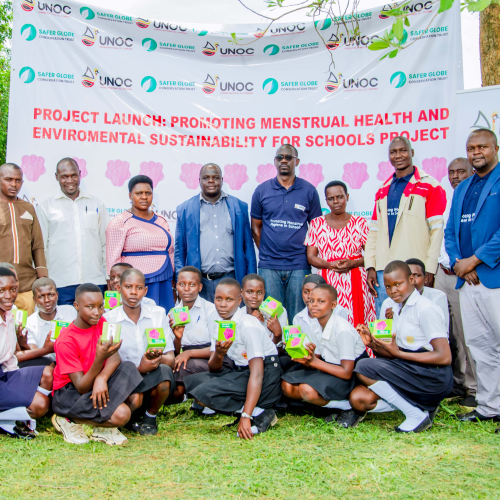
Advocacy
Continuous engagement with political leaders, corporate executives, and, critically, major polluters is essential, especially as Uganda approaches its first oil production. All decisions and actions must align with the legal and regulatory frameworks while prioritizing environmental needs and concerns. SGCT works with Government Ministries, Departments, and Agencies (MDAs) to monitor the implementation of Environmental and Social Impact Assessment (ESIA) recommendations. Through policy advocacy, we address emerging environmental issues, close policy gaps, and contribute to the revision of outdated laws to better prepare Uganda for the environmental demands of extractive industries.
In mineral-rich regions such as Kasanda, Karamoja, Kabale, Hoima, Kikuube, and Buliisa, we focus on improving transparency and accountability in natural resource governance. This includes tracking revenues from extractive companies from initial payments to government
to their final use in public service delivery. Under our Business and Human Rights initiative, SGCT monitors company operations to ensure they respect the rights of host communities,
including the right to a clean and healthy environment, fair employment, and property ownership.
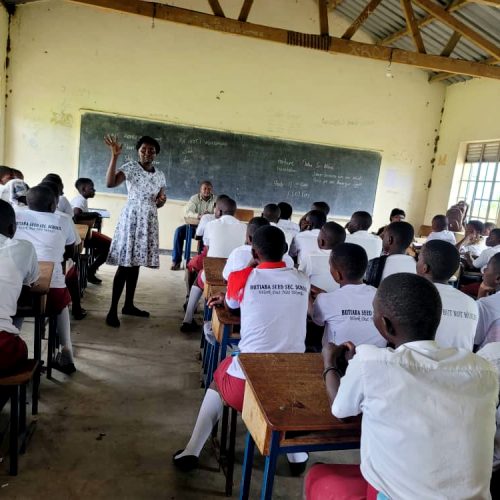
The Menstrual Hygiene Management for Girls in Hoima District Schools
The Safer Globe Conservation Trust (SGCT) is leading an impactful menstrual health and hygiene initiative in partnership with the Uganda National Oil Company (UNOC) to improve the wellbeing and education outcomes of schoolgirls in Hoima District. The project targets eight schools, four primary and four secondary in Buseruka and Kabaale sub-counties, including Butiaba Seed Secondary School, Walukuba Primary School, and Kabaale Public School, among others. These schools were selected due to their proximity to oil exploration areas and their vulnerability to challenges associated with Menstrual Hygiene Management (MHM).
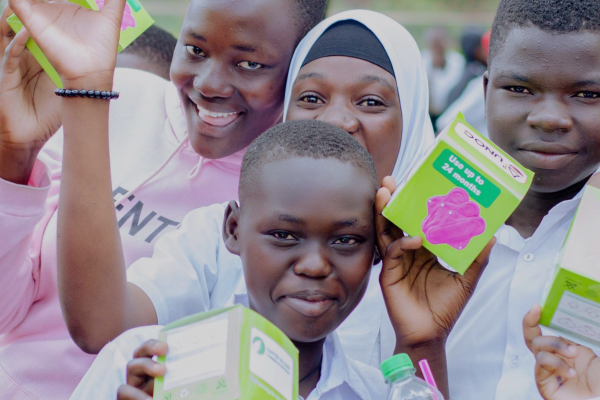
The project is aligned with several Sustainable Development Goals (SDGs), including SDG 3 (Good Health and Well-being), SDG 4 (Quality Education), SDG 5 (Gender Equality), and SDG 6 (Clean Water and Sanitation). It also ties into the broader human rights agenda, affirming that access to menstrual health is fundamental for dignity and equality.
SGCT will conduct eight one-day trainings on MHM, which include practical demonstrations on the making of reusable sanitary pads.
The project seeks to address the persistent problem of school absenteeism and dropout among adolescent girls due to inadequate access to sanitary materials and poor menstrual hygiene practices. SGCT recognizes that menstruation, while a natural process, is still surrounded by stigma, misinformation, and logistical barriers that limit the participation of girls in school, especially in rural and under-resourced communities.
To tackle this, SGCT will conduct eight one-day trainings on MHM, which include practical demonstrations on the making of reusable sanitary pads. These eco-friendly, cost-effective alternatives offer long-term solutions for girls who cannot afford disposable pads and reduce environmental impact, as they do not require incineration and generate minimal carbon emissions during production.
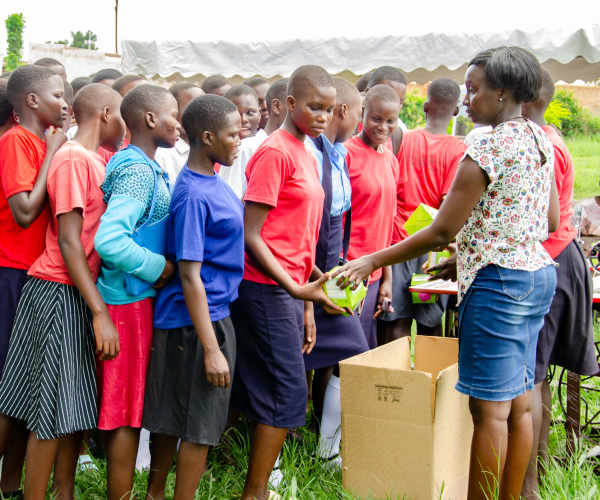
Each school will receive sewing machines, needles, thread, and materials like leak-proof polythene and absorbent fabric. A local tailor identified by each school will be trained and tasked with supporting ongoing pad production. Students in Senior 1–3 and Primary 4–6 will participate in both pad-making and hygiene training. The initiative also includes training health clubs, school staff, and peer trainers, equipping them to lead hygiene campaigns, combat stigma, and offer support to menstruating students.
The project is aligned with several Sustainable Development Goals (SDGs), including SDG 3 (Good Health and Well-being), SDG 4 (Quality Education), SDG 5 (Gender Equality), and SDG 6 (Clean Water and Sanitation). It also ties into the broader human rights agenda, affirming that access to menstrual health is fundamental for dignity and equality.

Expected outcomes include:

Production and distribution of at least 4,000 re-usable pads, reaching 600 girls.

Support to 8 schools to produce reusable pads

Improved school retention and academic performance among girls.

Increased knowledge and awareness around menstrual health among students, teachers, and communities.

Our aim is to empower girls through knowledge and skills, reduce school absenteeism, promote environmental conservation, and contribute to sustainable development.
The project emphasizes partnerships and community involvement, collaborating with stakeholders like Reproductive Health Uganda (RHU), local government offices, health centers, and civil society.
These partners will enhance training delivery and ensure the program addresses the broader
reproductive health needs of adolescent girls.
Ultimately, SGCT aims to empower girls through knowledge and skills, reduce school absenteeism, promote environmental conservation, and contribute to sustainable development. This initiative not only supports girls during menstruation but also equips them with practical skills that can evolve into income-generating activities, strengthening resilience within their communities.
Why Work with The Organization for Safer Globe Conservation Trust?
GROUNDED IN COMMUNITY-CENTERED ENVIRONMENTAL SOLUTIONS:
SGCT partners directly with vulnerable and at-risk communities to promote sustainable, science based environmental practices. From clean energy access to reforestation and sustainable agriculture, their grassroots approach ensures long-term impact.
PROVEN IMPACT ACROSS MULTIPLE SECTORS:
The Trust actively delivers results in biodiversity conservation, renewable energy adoption, climate smart agriculture, environmental education, and girls health. Their diverse, integrated programs are already transforming lives across districts in Uganda.
STRONG PARTNERSHIPS AND INSTITUTIONAL NETWORKS:
SGCT works with government agencies, civil society coalitions, schools, and international partners like the Uganda National Oil Company (UNOC). These collaborations amplify their reach, accountability, and policy influence essential for sustainable development.
SGCT Thematic Areas

Promoting Biodiversity Conservation
Our approach includes identifying vulnerable households and providing them with access to renewable energy technologies
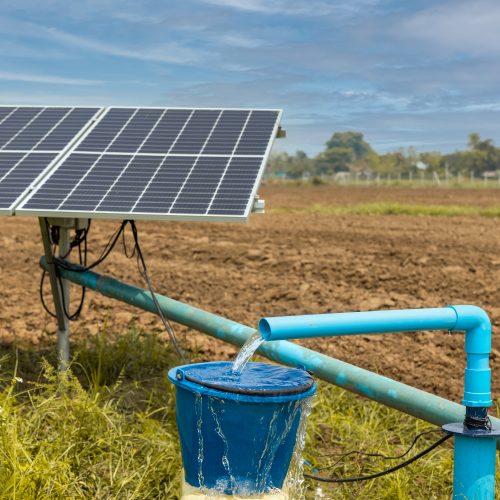
Advancing Sustainable Agricultural Practices
This is especially beneficial for farmers seeking to adopt farming as a livelihood or commercial enterprise.

Promoting Environmental Education and Awareness
We prioritize environmental conservation efforts within the most vulnerable and at-risk communities.
